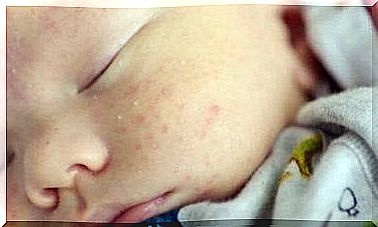Seven Tips To Avoid Aggression In Children

There are many ways to avoid aggression in children. But the key to all manners is knowing what aggressive behavior means and why parents should never lose control during a tantrum or tantrum.
Aggression in children is more often a sign of underlying frustration, fear, or sadness than a simple expression of anger.
As parents, we must be aware of our children’s emotional needs. And we need to provide them with a healthy and supportive environment, because that’s what they need to live a good life.
To spot patterns in children’s aggressive behavior, remember that all intentional acts of violence are a sign of a problem that needs attention. This includes kicking, scratching, biting, yelling and swearing.
There are many ways to help a child control their aggressive behavior. Here are seven tips for avoiding aggression in children.
7 tips to direct aggression in children
1. Build an atmosphere of trust
Try to open channels of communication with your child. Build an atmosphere of trust in the house. In this way, your child will have the confidence to express their feelings freely, without fear of criticism or punishment.
This familiar and comforting atmosphere allows your child to release his emotions. Feeling truly understood and heard will help your child put his aggressive behavior behind him.
If your child starts to show his feelings, take the opportunity to explain that it is completely normal to feel angry or angry at times. Also explain that violence does not solve problems.

2. Find the source of their aggression
To eradicate aggression, start to see how your little ones behave.
The idea is to identify the causes of your child’s aggressive behavior. You may be surprised by what you discover. A common cause of aggression in children is low self-esteem.
You may also find that your child is reacting to the arrival of a sibling. Feeling unloved or under-cared for can make him try to get your attention in all the wrong ways.
3. React quickly to deal with the aggressive behavior
If children’s aggression affects those around them, especially other children, then intervention is needed. At this point, you need to reach out to your child. Otherwise, his aggressive behavior may cause him to be rejected by his peers in the future.
Helping your child to manage his emotions in a healthy way will teach him to replace violence with more rational behavior. Don’t underestimate your child: Waiting for the problem to get worse will only make it harder to take action.
4. Find a way to experience daily success
We all know the power that words have over us. A nice word can give us confidence, just as a mean remark can erode confidence. Imagine what raising children with emotional intelligence could mean for them in the future.
Therefore, to deal with aggression in children, you need to emphasize positive values. Teach your child to express his emotions in a good way. Praise him for his performance. Make him feel successful.
A good way to do this is to praise your child for the effort he has put in and the result. When your child makes his bed in the morning, tell him that he did a good job.
Let him know that you appreciate his effort. If there’s anything you need to improve on, do it after praising his effort. This way, your child will be more open to your feedback.
5. Be a role model for your child
Parents should never be aggressive towards their children. Yelling at your child makes it less likely that he will understand what you want to say.
Yelling or harsh words will only make your kids defensive. And the worst part is that when kids grow up in an environment like this, they assume it’s the right way to express themselves.
When children see their parents screaming instead of talking, and when every argument ends with someone slamming their fist on the table or running away, this is exactly what they will imitate in the future when they lose their temper.
For this reason, it is crucial as a parent to also do what you recommend to your children. This way you make your expectations of your child very clear.

6. Remain calm during aggressive incidents
If your child acts aggressively towards a family member or friend, stop them and move them away from that person. Alone for a while can help children think about what they’ve done.
If your child is violent towards you, their parent, leave him alone. Remember this is an explosion of pent up emotions. Reasoning with him won’t work until he’s calmed down.
When it’s over, talk to your child and explain that their behavior was not acceptable. Give him some alone time in their room to think about it. If corrective actions are required, put them into practice as soon as possible.
7. Ask a specialist for help
If you’ve already tried these recommendations and your child is still aggressive, it’s time to talk to a child therapist.
Professional help can identify the cause of the aggressive behavior and help your family deal with it.









